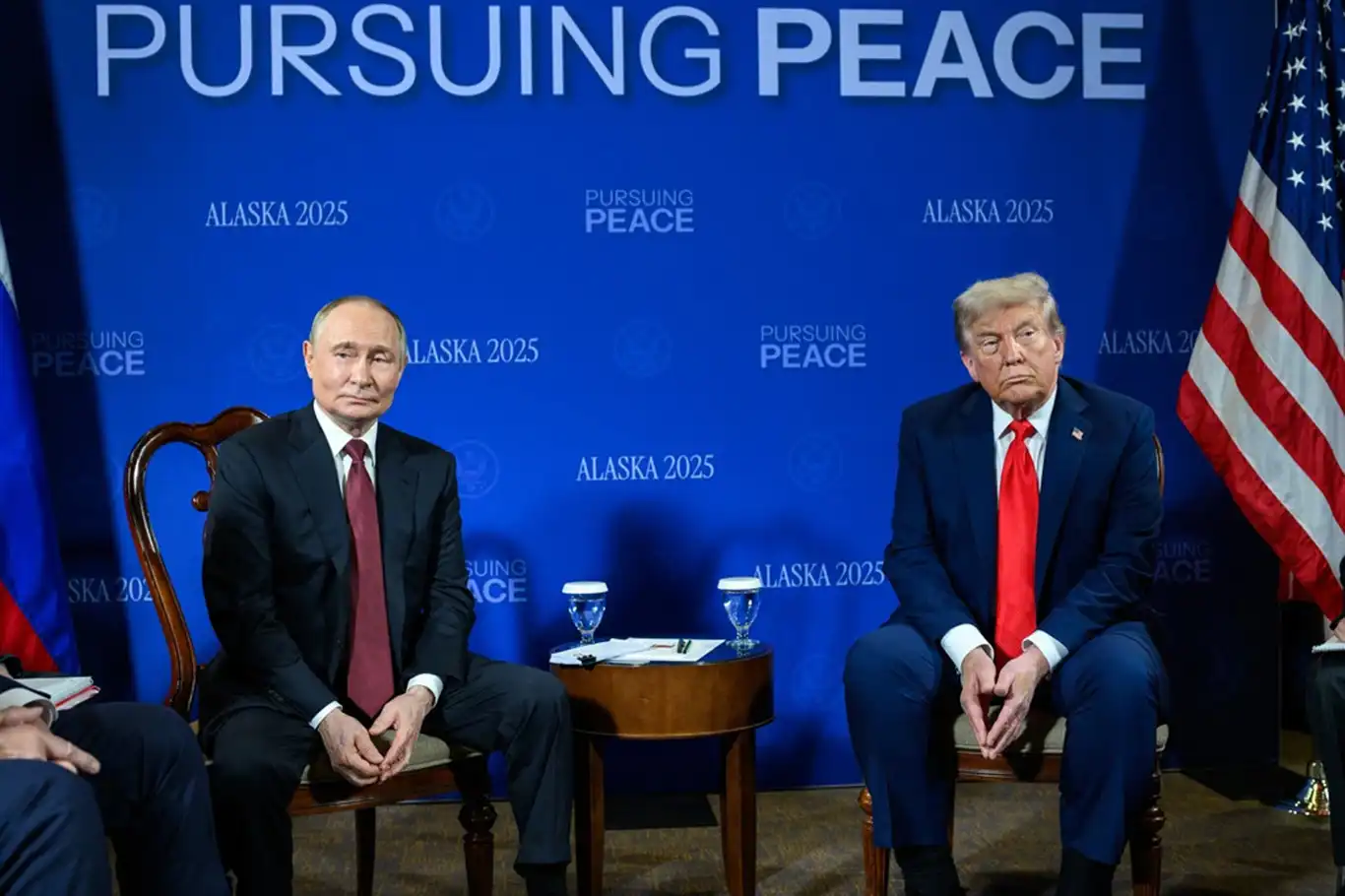Trump-Putin Anchorage summit ends without ceasefire agreement


A highly anticipated summit between U.S. President Donald Trump and Russian President Vladimir Putin concluded Friday without producing a ceasefire agreement in the ongoing war in Ukraine, leaving uncertainty about the future of the conflict and raising doubts over both leaders’ strategies.
After nearly three hours of closed-door discussions, the two leaders appeared briefly before the press to deliver a joint statement but refused to take questions. The abrupt conclusion highlighted the lack of concrete progress.
President Trump, who has long cast himself as a dealmaker, admitted that no agreement was reached. “There’s no deal until there’s a deal,” he said, while claiming “great progress” had been made, though without providing specifics. His comments were widely seen as an attempt to downplay the setback, especially after previously stating the summit had only a “25% chance” of failing.
Observers noted an unusual dynamic during the press appearance: Putin delivered extended remarks outlining his views on the conflict, while Trump remained silent. Analysts said the optics raised questions about Trump’s influence in the discussions.
For Putin, the summit offered an opportunity to showcase Russia’s defiance on the global stage. Referring to “root causes” of the Ukraine war, he reiterated long-standing justifications for Moscow’s aggression—widely interpreted as an attempt to undermine Ukraine’s sovereignty.
In Kyiv, the lack of a ceasefire was greeted with cautious relief. Ukrainian officials, wary of concessions that might weaken their territorial integrity, said the absence of a deal avoided immediate risks but warned of continued Russian escalation.
“Three-and-a-half years of Western efforts, including this summit, have failed to change Putin’s objectives,” a Ukrainian government source told reporters. “The Anchorage outcome only emboldens Russia to continue its aggression.”
Putin’s insistence on addressing “root causes” of the war was interpreted by Ukrainian officials as a signal of his determination to dismantle Ukraine as an independent state.
The failed summit now puts pressure on Trump to follow through on his threats of “severe consequences” should Moscow refuse to halt its offensive. In a Fox News interview following the talks, Trump floated the possibility of new sanctions “maybe in two weeks, three weeks,” but his vague timeline raised doubts about Washington’s resolve.
Recent patterns of unfulfilled deadlines under both the Biden and Trump administrations have fueled skepticism in Kyiv that Western ultimatums will be enforced. Meanwhile, Russia has intensified operations in eastern Ukraine, according to local sources, showing no sign of de-escalation.
No follow-up summit has been scheduled, and there is no indication of a trilateral meeting involving Ukrainian President Volodymyr Zelensky. Putin hinted at a possible meeting in Moscow but offered no specifics.
For Trump, the Anchorage summit was a high-stakes gamble with few returns. His red-carpet reception for Putin contrasted sharply with the lack of results, while the optics of the Russian president dominating the press conference may have political consequences at home.
The Anchorage summit, once billed as a chance for breakthrough, has instead become a stark reminder of the deep divisions between Washington and Moscow—and the elusive path to peace in Ukraine. (ILKHA)
LEGAL WARNING: All rights of the published news, photos and videos are reserved by İlke Haber Ajansı Basın Yayın San. Trade A.Ş. Under no circumstances can all or part of the news, photos and videos be used without a written contract or subscription.
Bolivia’s presidential election on Sunday has ushered in a historic political shift, setting the stage for an unprecedented runoff on October 19 after voters delivered a decisive rebuke to the ruling Movement Toward Socialism (MAS) party.
Hospitals across the Gaza Strip have received the bodies of at least 60 civilians over the past 24 hours, while 344 others were admitted with injuries from ongoing Israeli attacks, according to Gaza’s Health Ministry.
A brutal attack on a pool hall in Santo Domingo late Saturday left seven people dead, marking the latest in a series of massacres fueling Ecuador’s escalating gang violence crisis.
Spain is grappling with one of the deadliest summers in its history as extreme heat has killed at least 2,405 people and fueled massive wildfires that have already destroyed more than 120,000 hectares of forest.